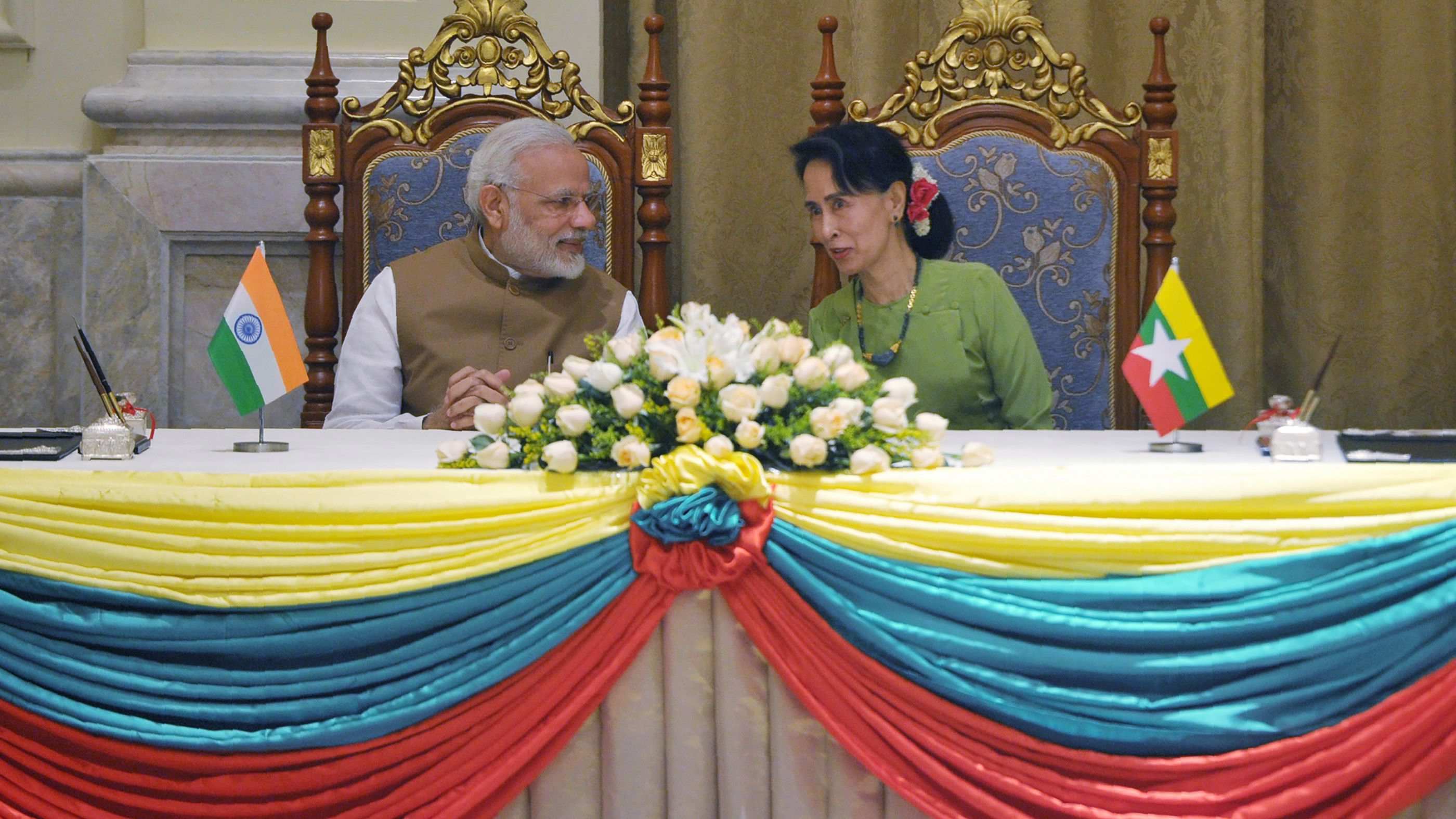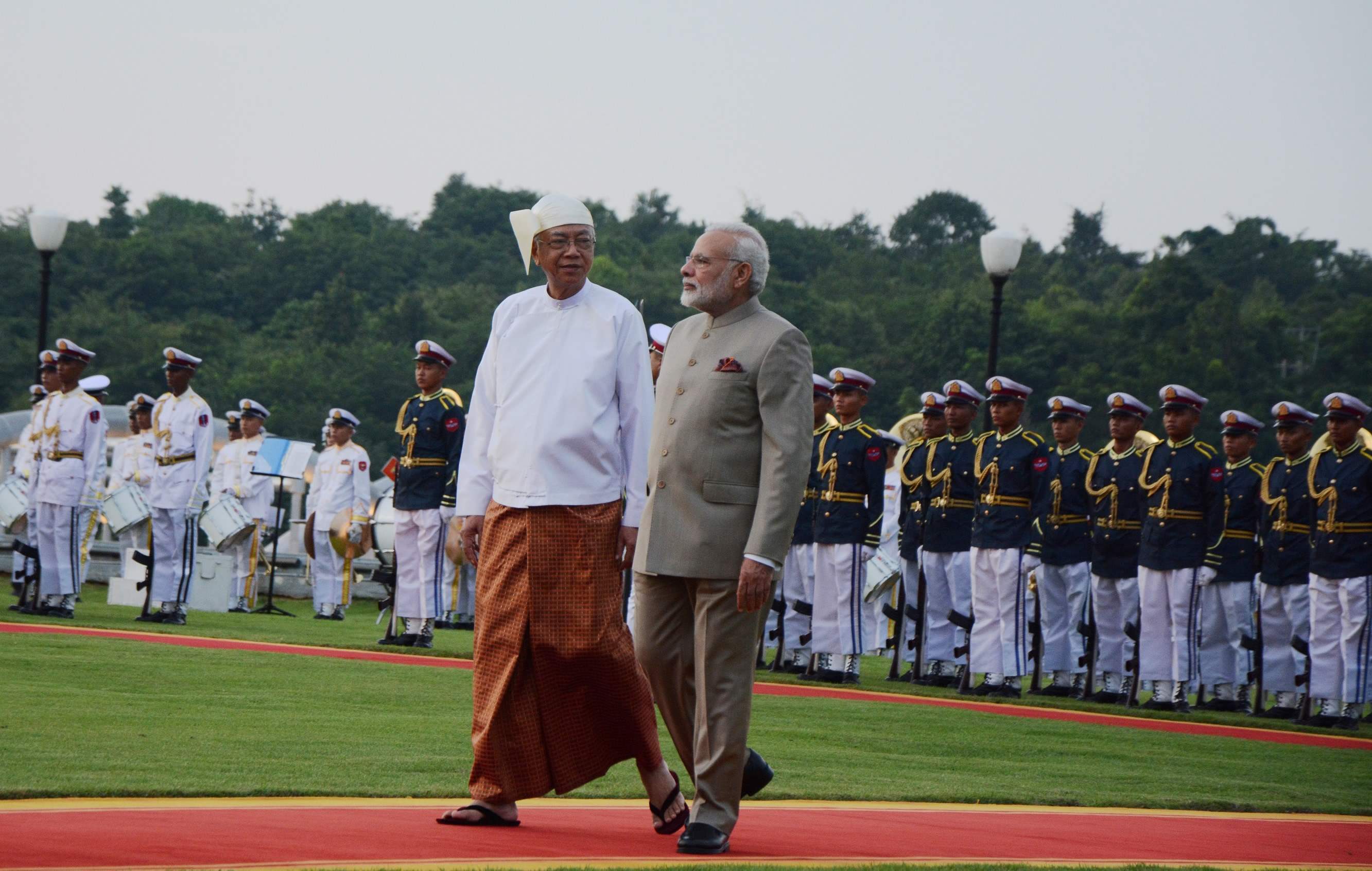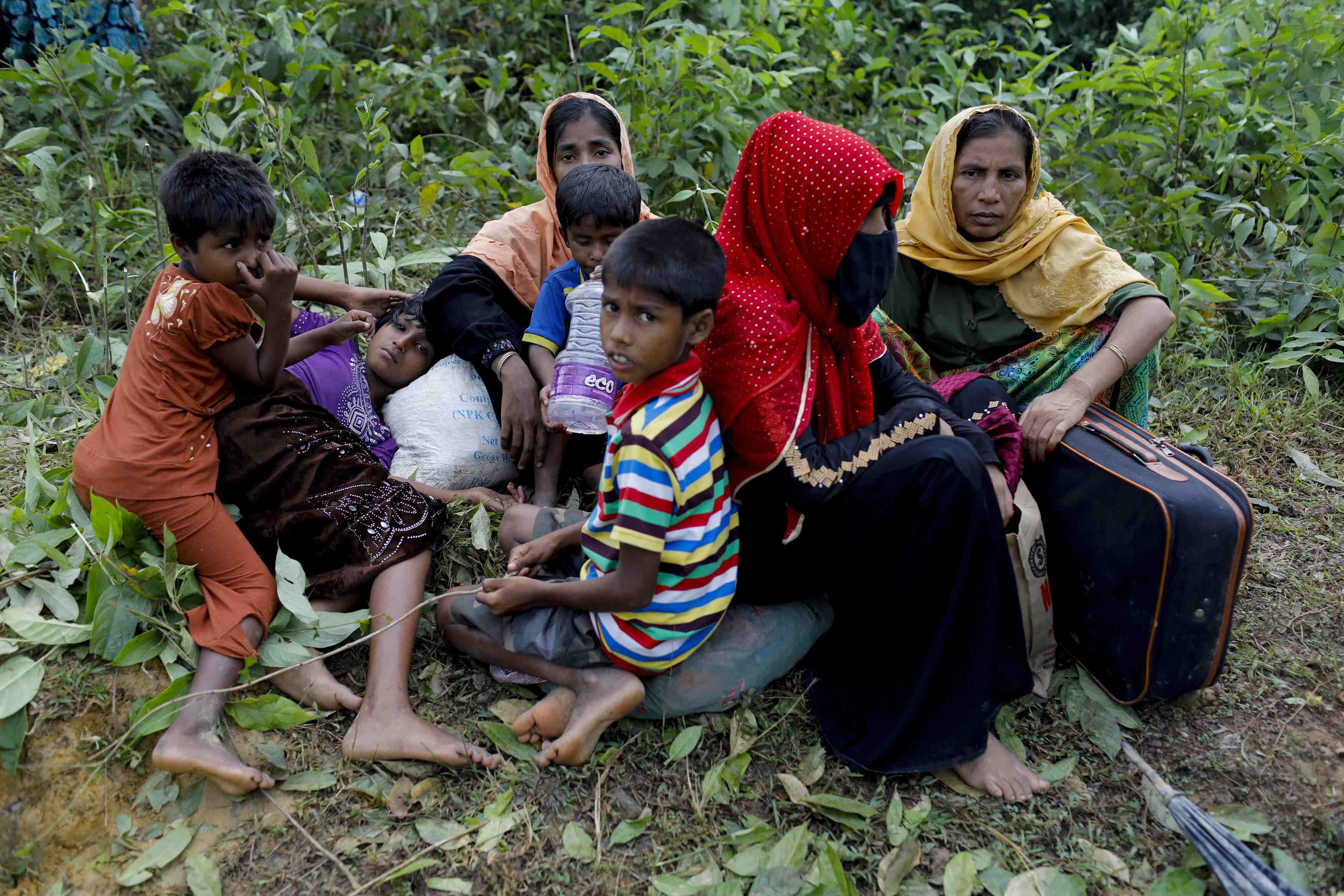
Politics
14:54, 07-Sep-2017
Indian PM Modi supports Myanmar amid ‘terror threats’
Nadeem Gill

India has stepped up efforts to pursue its Act-East policy with offers of projects in Myanmar’s violence-hit Rakhine state during Prime Minister Narendra Modi’s visit.
Indian Foreign Secretary Subrahmanyam Jaishankar said India offered assistance to a development program in Rakhine and had made an in-principle commitment.
India is committed to the development of Myanmar's Rakhine province, he added while addressing a news conference after talks between Indian Prime Minister Narendra Modi and Myanmar's State Counsellor Aung San Suu Kyi in Yangon on Wednesday.
The Look East approach
Modi is on a three-day visit to Myanmar, where he offered prayers at a venerated Buddhist shrine, addressed Indian expatriates and blamed violence in the Rakhine state on extremists.
The visit, however, is a part of India’s Act-East policy, which New Dehli aims to achieve via Myanmar which sits at a strategic position connecting India, China, and Southeast Asian countries and is also a significant point along China's Belt and Road initiative.

Indian Prime Minister Narendra Modi (R) walks with the President of Myanmar Htin Kyaw as they review a guard of honor during the first day of a two-day official visit to Myanmar on September 5, 2017. /AFP Photo
Indian Prime Minister Narendra Modi (R) walks with the President of Myanmar Htin Kyaw as they review a guard of honor during the first day of a two-day official visit to Myanmar on September 5, 2017. /AFP Photo
India shares a 1,600 kilometers border with Myanmar, a country it considers a gateway to Southeast Asia and has announced to upgrade the Yagyi-Kalewa road that is part of the India-Myanmar-Thailand highway, Indian media reported.
India is assisting Myanmar in building an airport and several other projects.
India’s ambitious efforts to boost economic ties with resource-rich Myanmar are meant to counter Chinese influence, said a report by Reuters news agency.
A report in China’s Global Times, however, does not agree, stating that India's contribution to regional stability should not be seen as a rival to China's growing presence in Myanmar.
Geopolitical gamesmanship will only increase the complexity of the issues in Rakhine, the Global Times report also warned.
According to an opinion editorial written by Bi Shihong, Myanmar is key in the new outlook, for it serves as a crucial buffer state between China and India and boasts a unique advantage in the framework of Beijing's Belt and Road initiative.
A report in India’s The Hindu newspaper quoted analysts, who said: “the thinking driving India’s Act-East policy, with the Association of South East Asian Nations (ASEAN) at its core, and China’s Belt and Road Initiative (BRI) is far from aligned”.
Two-way trade between India and Myanmar has risen to about 2.2 billion US dollars.
Rohingya crisis
The Indian PM arrived in Myanmar on Tuesday at a time of growing anger over the treatment of Rohingya Muslims. Thousands of people fled into Bangladesh to escape violence in the Rakhine state.

Newly arrived Rohingya refugees sit on the roadside after fleeing to Bangladesh from Myanmar in Ukhiya on September 6, 2017. /AFP Photo
Newly arrived Rohingya refugees sit on the roadside after fleeing to Bangladesh from Myanmar in Ukhiya on September 6, 2017. /AFP Photo
Myanmar is facing criticism that it is persecuting the minority Rohingya Muslim community, a claim the Buddhist-majority Myanmar strenuously denies, saying the army and police are fighting "terrorists".
Refugees and rights groups accused its armed forces of violating the rights of the mostly stateless Rohingya.
Modi has expressed concern over the violence in Rakhine that triggered a refugee crisis because of a security force operation against Muslim rebels that led about 125,000 people fleeing to Bangladesh.
The Indian premier said New Dehli and Myanmar had similar security interests in the region.
“We hope that all stakeholders together can find a way out in which unity and the territorial integrity of Myanmar are respected,” Modi said in a joint statement with State Counsellor Aung San Suu Kyi in the Myanmarese capital, Nay Pyi Taw.
"We would like to thank India for its strong stance concerning the terrorist threat that came to our country a couple of weeks ago," Suu Kyi responded.
Indian diaspora in Myanmar
Modi addressed Indian expatriates at Thuwunna Stadium in Yangon, where he made an offer of no-costs visas to all Myanmarese citizens wishing to visit India.
He prayed at Ananda Temple, a venerated Buddhist shrine in Myanmar's ancient city of Bagan, built in the early 12th century.
The Archaeological Survey of India (ASI) has carried out structural conservation and chemical preservation work of this temple. Restoration work is being carried out after the damage caused due to the earthquake last year.
(With input from Reuters)

SITEMAP
Copyright © 2018 CGTN. Beijing ICP prepared NO.16065310-3
Copyright © 2018 CGTN. Beijing ICP prepared NO.16065310-3